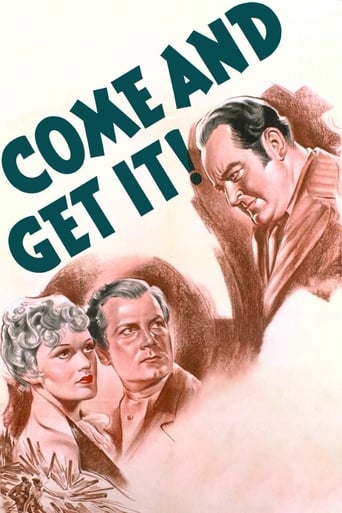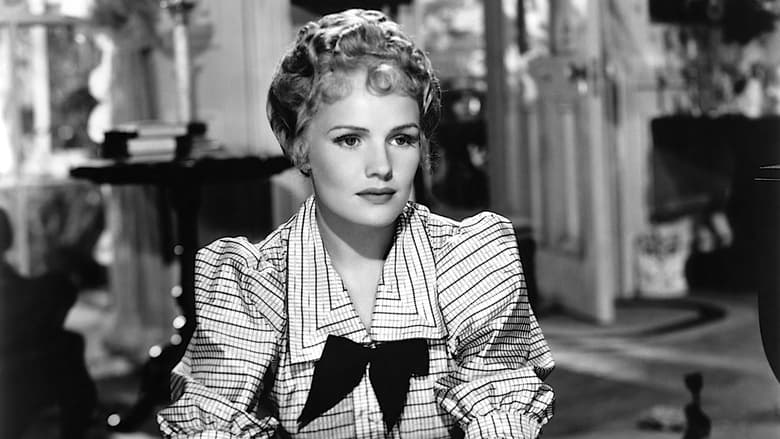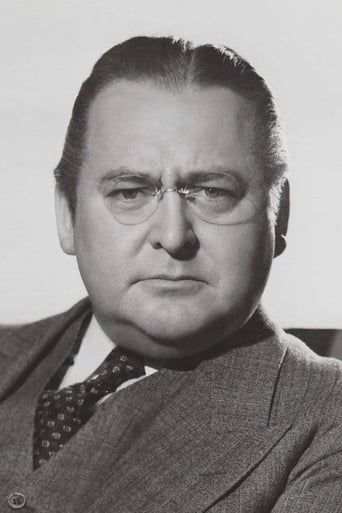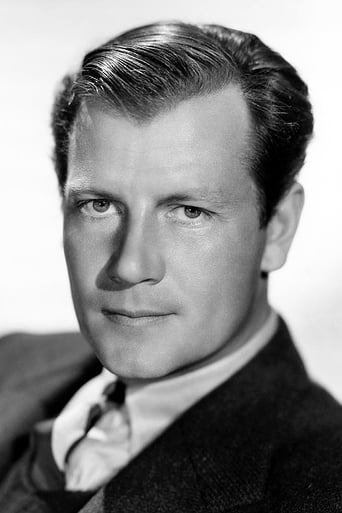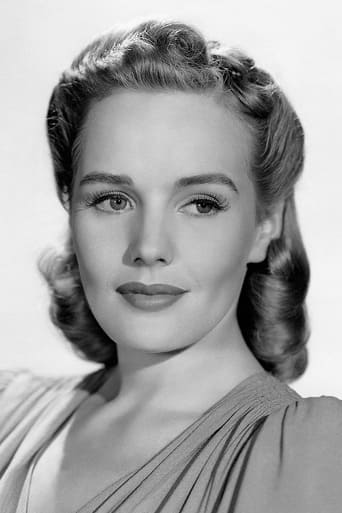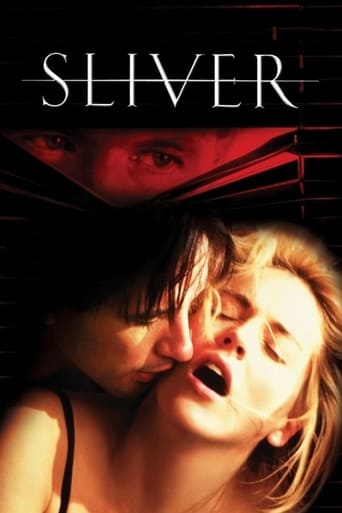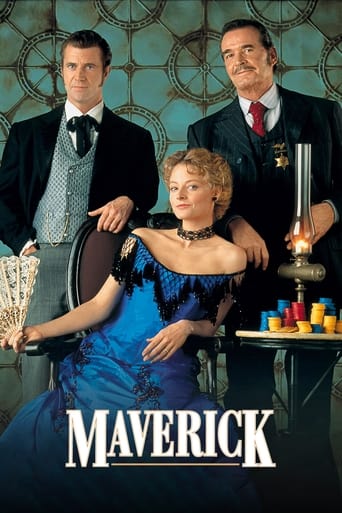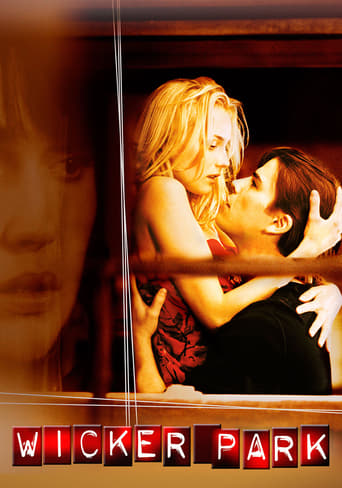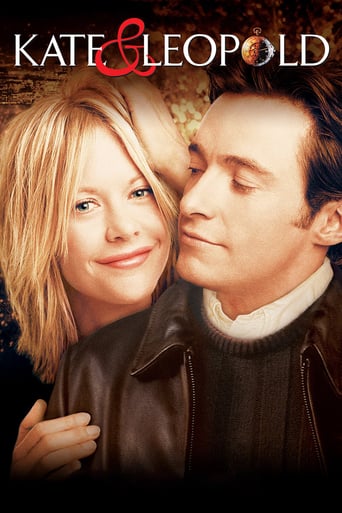Come and Get It (1936)
An ambitious lumberjack abandons his saloon girl lover so that he can marry into wealth, but years later becomes infatuated with the woman's daughter.
Watch Trailer
Cast


Similar titles
Reviews
Good films always raise compelling questions, whether the format is fiction or documentary fact.
This film is so real. It treats its characters with so much care and sensitivity.
It’s sentimental, ridiculously long and only occasionally funny
By the time the dramatic fireworks start popping off, each one feels earned.
One of the very few occasions when two of Hollywood's greatest directors were given joint directorial credit on a film. "Come and Get It" was co-directed by Howard Hawks and William Wyler though to look at it you might never have guessed. It's entertaining enough but it's also fairly undistinguished despite its cast. Walter Brennan, (just about resisting hamming it up), won the first Best Supporting Actor Oscar for his performance while Edward Arnold gets star-billing for a change, (he's his usual superb self), though it's the great Frances Farmer who just about steals the movie in a dual role, (mother and daughter).It's based on an Edna Ferber novel but with the exception of the 1936 "Showboat", Ferber never did transfer well to the screen, (at least this one isn't dragged out). Gregg Toland and Rudolph Mate were joint cinematographers but again there is nothing here to make you think that. Of course, it is now of historical interest in being one of the few films to feature Farmer in a major role in what was a tragically short career, (she only made 16 films). It isn't much seen today.
This is an excellent film, and one with an interesting history you should read before viewing it (check out Wikipedia!).According to Wikipedia, when Howard Hawks began directing it, the story was about the rape of the land by a soon-to-be timber baron. Producer Samuel Goldwyn wanted it to be about a timber baron who is involved in a romantic triangle with his son and a young lady. Goldwyn won, of course, but had to fire Hawks and replace him with William Wyler. I think Goldwyn made the right decision, although both themes are well-covered.The beginning of the film is very interesting because of all the scenes on location in Idaho (not the northern mid-west where the film is set) of timber processing from the mass cutting down of trees, to their transport (before trucking), to their processing. Watching the excellent REAL footage, I kept thinking how industry would rape the land back then.Then the film switches more to the romance angle of the film, which is quite riveting as the timber baron turns into a dirty old man who makes a fool of himself, particularly after the son falls (reasonably) in love with the same young lady.The father/timber baron was supposed to be played by Spencer Tracy, one of my very favorite actors. And, he would have been excellent in it, but to be honest, Edward Arnold is perfect in the role, and it is a good reminder that Arnold was once a top name in the film industry, before his weight led him (apparently happily) into more character roles. The son is played by Joel McCrea, and although his role is clearly secondary, he does a fine job in a key role. The female interest is Frances Farmer, and may I say I don't get it. I was not impressed by Farmer at all, and from my perspective she is the one defect in the film. It is interesting that she plays both a woman and the woman's daughter. Walter Brennan has always been one of my favorite character actors, and this role brought him his first (and the first) Oscar for supporting male actor. However, while I still enjoyed his performance, I wasn't quite convinced of his Swedish accent here.While the theme of the rape of the land got sidelined, it doesn't disappear from the film altogether, but, in my view, the story of the emotional fall of a rich and powerful man is far more interesting.Highly recommended.
There was co-director but this sure looks like Howard Hawks. For one thing, there's Frances Farmer, Hawks' type of woman -- young, beautiful, throaty. For another, it's almost a rough draft of "Red River". An ambitious man leaves the woman who loves him. The woman dies in his absence. Years later, he and his son meet another woman who reminds the father figure of the girl he once lost. The son falls in love with her. Conflict ensues between the two men, with the father provoking a physical fight with the younger man. The older man realizes that he's been foolish and the son winds up with the girl. (I think it was Robin Wood who first pointed out these parallels.) And that climactic scene -- with the father (Edward Arnold) slapping his son (Joel McRea) -- appears not just in "Come and Get It" and "Red River" but, in altered form, in Hawks' "Billy the Kid." Anyway, Arnold is the hearty, blustering man of business who slips sideways into a marriage de convenance, leaving Frances Farmer behind. She's good looking enough and might have been a decent actress if she hadn't been mentally ill.Good scenes of cutting timber and processing the logs into sheets of wood. Good depiction of stubborn robber baron mentality too -- Arnold bellows cheerfully, "Why by the time I'm done there won't be ten cents worth of timber left." Joel McRea is a stubborn kid who invents the paper cup and who has notions about replanting the forest, both of which Arnold believes to be nonsense. Florence Kluckhohn, the anthropologist, suggested humans have three ways of relating to nature: conquer it, live in harmony with it, or be subjugated to it. For Arnold's rabid capitalist, it's always "Vici, vici, vici." He rails against Teddy Roosevelt and his trust busters. It wasn't that way in the old days when you could shave an entire ecosystem down to stubble. Why can't they leave a man alone to do things the way they've always been done. An appealing sentiment. Well, it must be appealing because it appears so often in advertisements and commercials. "Never had it. Never will." It's kind of an interesting thread that is only brought in a few times and then discarded.What the script lacks in social comment -- something that never interested Howard Hawks anyway -- it makes up for in its examination of the psychodynamics of Edward Arnold. He begins as a greedy devil-may-care hard working poor guy. His fling with Frances Farmer is nothing more than that to him. But after he leaves and she dies, he finds himself in a companionate marriage that doesn't satisfy him. His old friend (Walter Brennan) had married Farmer and they'd had a daughter. When Arnold visits his old friend again, the first time in twenty years, he is struck by Brennan's daughter who looks exactly like Frances Farmer -- and in fact IS Farmer in a dual role.Arnold is now rich and powerful but he's fifty years old, more than twice the age of Brennan's daughter. Well, as they say, there is no fool like a fool who has had twenty years to get used to having everything he's ever wanted -- and he wants Farmer. It doesn't do him any good. He showers her with gifts and finally proposes that they set up in a Chicago apartment where no one will know what's going on. She's repulsed, of course, and he comes to his senses.It's difficult for all of us to finally come to our senses, and the last shot of Edward Arnold ringing the huge triangle at his mansion, calling everyone to dinner, and braying, "Come and get it!", with his eyes filled with tears, is a tragic one. He's one of those people who made the wrong choice years ago, just like the rest of us.
Edna Ferber's timberland drama gives top billing to EDWARD ARNOLD over JOEL McCREA and FRANCES FARMER--but it's Farmer who impresses the most with her dual role, despite scene-stealing tactics from WALTER BRENNAN with a Swedish accent in an Oscar-winning supporting role as Arnold's simple-minded friend.EDWARD ARNOLD seems strangely miscast as the lumberman with designs on a much younger woman. His relationship with FRANCES FARMER and her immediate attraction to him seems highly improbable, despite the fact that he can give her wealth and security. A more attractive mature leading man as the two-fisted lumberjack would have served the romantic angle of the drama more believably.Arnold has ambitions to be the richest timberland boss in Wisconsin. The film begins with a series of energetic and visually exciting scenes of timber falling in the forests as the lumbermen go about their vigorous work details. It's an almost documentary approach that gives the story that follows great authenticity, although it's a typically plot-heavy Edna Ferber tale of two generations.In Wisconsin of the 1800s, Farmer is a saloon gal, Lotta, impressed by Arnold's wealth and improbably falls in love with him. When he runs off to marry a society girl, Farmer turns even more improbably to Walter Brennan as her husband.Twenty years later, Arnold is a rich man with a wife (MARY NASH) and two children (JOEL McCREA and ANDREA LEEDS). He goes back to visit Brennan and meets his daughter--FRANCES FARMER in a more demure role is the spitting image of her mother, who has died, and her name is Lotta too. She's a sweeter, more refined version of her mother. The plot thickens, in true Ferber style, with Arnold now intent on wooing Brennan's daughter.Farmer's beauty is reminiscent of Madeleine Carroll's type of blonde loveliness with sculptured cheekbones and fine facial features. JOEL McCREA is rather wasted in what is little more than a supporting role as Arnold's business man son, instantly attracted to Farmer and then realizing so is his father.Summing up: An oddly interesting tale despite some improbabilities in the story line. Probably the film that best showcases Frances Farmer, the film was co-directed by Howard Hawks and William Wyler.

